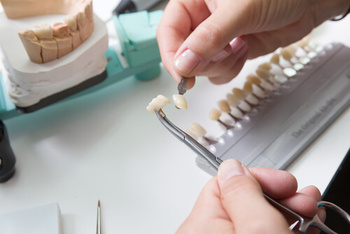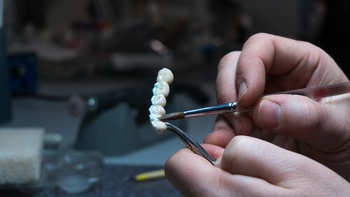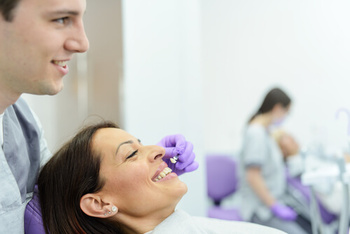In the gleaming world of cosmetic dentistry, veneers emerge as both a beacon of hope for those desiring a flawless smile and a topic of heated debate for sceptics questioning their safety. The question, “Are veneers bad for your teeth?” has echoed through dental clinics, online forums, and social circles, stirring a mix of opinions and myths. This article aims to demystify the veil of uncertainty shrouding dental veneers, delving into the heart of cosmetic dentistry to uncover the truth. With veneers playing a pivotal role in smile transformations, it’s essential to understand the facts and fiction and understand their impact on natural teeth. Join us as we explore the nuanced world of veneers, offering clarity and dispelling doubts, ensuring your journey towards a dazzling smile is informed and confident.
Understanding Dental Veneers
Dental veneers, slender yet robust casings bonded to the tooth surface, have revolutionised cosmetic dentistry. They’re meticulously crafted to cover chipped, broken, or otherwise cosmetically flawed teeth, enhancing one’s smile while providing protection. Veneers come in various materials, primarily porcelain and composite, each boasting distinct advantages.

Porcelain Veneers
Porcelain veneers are celebrated for their durability and ability to replicate the translucency of natural teeth. They resist stains better than their composite counterparts and offer a lasting solution for a beautiful smile. Typically, they require a thin layer of enamel to be removed, allowing for a flush fit without significantly altering the natural structure of existing teeth.
Composite Veneers
Composite veneers, alternatively, are known for their less invasive application. They can often be applied directly without extensive enamel removal, making them a preferred choice for those wary of irreversible alterations. However, they might boast a different longevity or stain resistance than porcelain veneers.
No Prep Veneers
A newer, even less invasive option includes “no-prep veneers,” which require minimal to no alteration of the natural tooth structure. They’re a testament to the advancements in cosmetic dentistry, offering a compromise between durability and preservation of natural teeth.
The Myth of Veneer Damage
In cosmetic dentistry, the adoption of dental veneers has surged in popularity thanks to their promise of transforming smiles. Despite their widespread acclaim, a cloud of scepticism still lingers over the procedure, with myths circulating about the potential damage veneers could inflict on natural teeth. This segment delves deep into these concerns, offering a comprehensive understanding that demystifies these myths and highlights the technological advancements and meticulous processes that make veneers a safe and effective cosmetic solution.
Understanding Veneers and Tooth Enamel
At the heart of the debate is eliminating a thin layer of tooth enamel to accommodate the veneer. Tooth enamel, the hardest element in the human body, serves as the frontline defence for teeth against daily wear and tear. The misconception that removing a portion of this protective layer could weaken the teeth and make them more susceptible to damage and decay is a common concern among potential veneer candidates.
However, the process is far less invasive than perceived. The amount of enamel removed is minimal—often just a fraction of a millimetre—and carefully calculated to maintain the tooth’s integrity and function. This precision underscores the advancements in dental techniques and materials, ensuring that the procedure is safe and protects as much of the natural tooth structure as possible.
Porcelain vs. Composite Veneers: Evaluating the Impact
When exploring the options of porcelain and composite veneers, understanding their composition and application process is crucial in debunking the myths surrounding enamel damage. Porcelain veneers, known for their durability and natural appearance, require a precise and conservative reshaping of the tooth’s surface. This allows for a seamless integration of the veneer with the natural tooth, enhancing its aesthetic without compromising its strength.
Composite veneers, alternatively, offer a less invasive application, sometimes requiring little to no enamel removal. This veneer is directly sculpted onto the tooth, offering a quick and reversible solution to cosmetic dental issues. When applied by a skilled cosmetic dentist, both types are designed to preserve natural tooth health, demonstrating the unfounded nature of concerns regarding enamel damage.
Temporary Veneers: Bridging the Gap Safely
The role of temporary veneers is often overlooked in discussions about their safety. Serving as a protective and aesthetic placeholder; temporary veneers ensure that the teeth remain safeguarded against sensitivity and external factors while the permanent veneers are crafted. This interim solution gives patients a glimpse into their future smiles and is critical in maintaining oral health throughout the veneer process.
The Professional’s Approach: Minimising Risks
A significant factor in mitigating the risks associated with veneers is the expertise of the cosmetic dentist. A proficient dentist will thoroughly assess a patient’s dental health, considering factors such as tooth decay, gum health, and oral hygiene habits. This holistic approach ensures that veneers are only recommended to candidates who will benefit from them without risking their natural tooth health.
Moreover, advancements in dental technology have led to the development of ultrathin veneers, which require an even more minimal alteration of the tooth surface. These innovations reflect the dental community’s commitment to improving cosmetic procedures and making veneers more accessible and safer for a broader range of patients.
Myth Busted: Veneers and Oral Hygiene
Contrary to the myth that veneers can lead to poor dental hygiene, veneer maintenance closely mirrors the care required for natural teeth. Proper brushing, flossing, and regular dental check-ups are paramount in preserving the aesthetics and health of veneered teeth. Indeed, the placement of veneers often catalyses individuals to adopt even more rigorous oral hygiene practices, motivated by the desire to maintain their new, enhanced smile.
Furthermore, addressing concerns of tooth decay and gum disease, often cited as potential consequences of getting veneers, is essential. These risks are not inherent to the veneers but rather associated with neglecting oral hygiene. Maintaining diligent care significantly minimises the likelihood of such issues, further debunking the myth that veneers inherently damage teeth.
Long-term Considerations and Care
From a long-term perspective, veneers’ lifespans—ranging from 10 to 20 years for porcelain veneers and 5 to 7 years for composite veneers—demonstrate their durability and the minimal impact they have on natural teeth when properly maintained. It’s worth noting that veneer replacement, when necessary, is also a carefully managed process that continues to prioritise the health and integrity of the underlying tooth structure.
In cases where veneers are deemed unsuitable, whether due to weakened teeth or other dental issues, alternatives such as dental crowns or orthodontic treatments are explored. This flexibility in cosmetic dentistry ensures that the primary focus remains on enhancing dental health and aesthetics that best suit the patient’s needs and conditions.
Veneers as a Cosmetic Solution
Veneers stands at the forefront of cosmetic dental treatments, offering an innovative solution for individuals aiming to transform their smiles. This versatile cosmetic solution has gained popularity for its ability to address and correct dental imperfections, including chipped or broken teeth and more extensive cases of damaged teeth. It provides a significant cosmetic improvement that boosts self-esteem and enhances overall appearance. Let’s delve deeper into how veneers serve as a pivotal cosmetic solution, especially in repairing chipped, broken, or damaged teeth, and dispel some myths regarding veneers potentially ruining natural teeth.
Transforming Smiles with Veneers

Veneers are thin, custom-made shells designed to cover the front surface of teeth, concealing dental imperfections such as chipped or broken teeth. These imperfections, often sources of self-consciousness for many, can be effectively masked by veneers, resulting in a seamless, bright, and aligned smile. Their ability to provide such transformative results has made them a highly sought-after option for those seeking cosmetic dental improvements.
The Solution for Chipped and Broken Teeth
Veneers present a highly effective cosmetic solution for individuals with chipped or broken teeth. Whether the damage is a result of an accident, wear and tear, or even dental decay, veneers can restore the appearance of the teeth to look as good as new. By applying a veneer over the affected tooth, dentists can improve the tooth’s aesthetic and protect the damaged area from further deterioration, offering both cosmetic and protective benefits.
Addressing Concerns About Damaged Teeth
In cases where teeth have sustained significant damage, whether through trauma or decay, veneers can offer a means of restoration that many patients find preferable to more invasive treatments. While severely damaged teeth may require additional therapeutic work, veneers can provide an excellent solution for structurally sound yet aesthetically compromised ones. They are carefully crafted to match the natural colour and shape of the patient’s teeth, ensuring the final result is functional and aesthetically pleasing.
Dispelling the Myth: Do Veneers Ruin Your Natural Teeth?
A common misconception is that veneers can ruin natural teeth. This myth likely stems from preparing the teeth for veneers, which involves removing a thin enamel layer. However, this process is precisely controlled to remove only the minimal enamel necessary for the veneers to fit properly. When performed by a skilled cosmetic dentist, this procedure is safe and does not compromise the tooth’s structural integrity. Veneers can protect the surface of damaged teeth and prevent further wear and tear, acting as a cosmetic enhancement and a protective shell.
A Long-Term Cosmetic Solution
Veneers are not just a temporary fix; they offer a long-term solution for cosmetic dental issues. Veneers can last many years with proper care, including regular brushing, flossing, and dental check-ups. They are resistant to stains and do not require any maintenance beyond good oral hygiene practices, making them a convenient and durable option for enhancing one’s smile.
Cosmetic Dentistry at Infinity Dental Care
At Infinity Dental Care, we understand the importance of aesthetics and oral health. Our approach to cosmetic dentistry, including the application of dental veneers, is rooted in preserving as much of the natural tooth structure as possible while achieving the desired cosmetic outcome. Our dental boutique offers a range of options, from porcelain to no-prep veneers, tailored to meet our patient’s unique needs and preferences.
Conclusion

The dialogue surrounding whether veneers are bad for your teeth is nuanced. While there are considerations and care requirements, the consensus in professional cosmetic dentistry is clear: with the right approach, veneers offer a safe, effective, and transformative option for enhancing your smile. It’s about balance—achieving aesthetic goals while maintaining the health and integrity of your natural teeth.
At Infinity Dental Care, we provide exceptional cosmetic treatments that cater to your dreams and health. Our team of experts is here to guide you through the process, ensuring a result that looks fantastic and harmonises with your oral health.
Ready to transform your smile? Call Infinity Dental Care at (02) 9159 6237 today for a consultation. Let us help you achieve the beautiful smile you’ve always wanted.
References
https://www.healthdirect.gov.au/veneers
https://www.colgate.com/en-us/oral-health/veneers/dental-veneers-pros-and-cons

